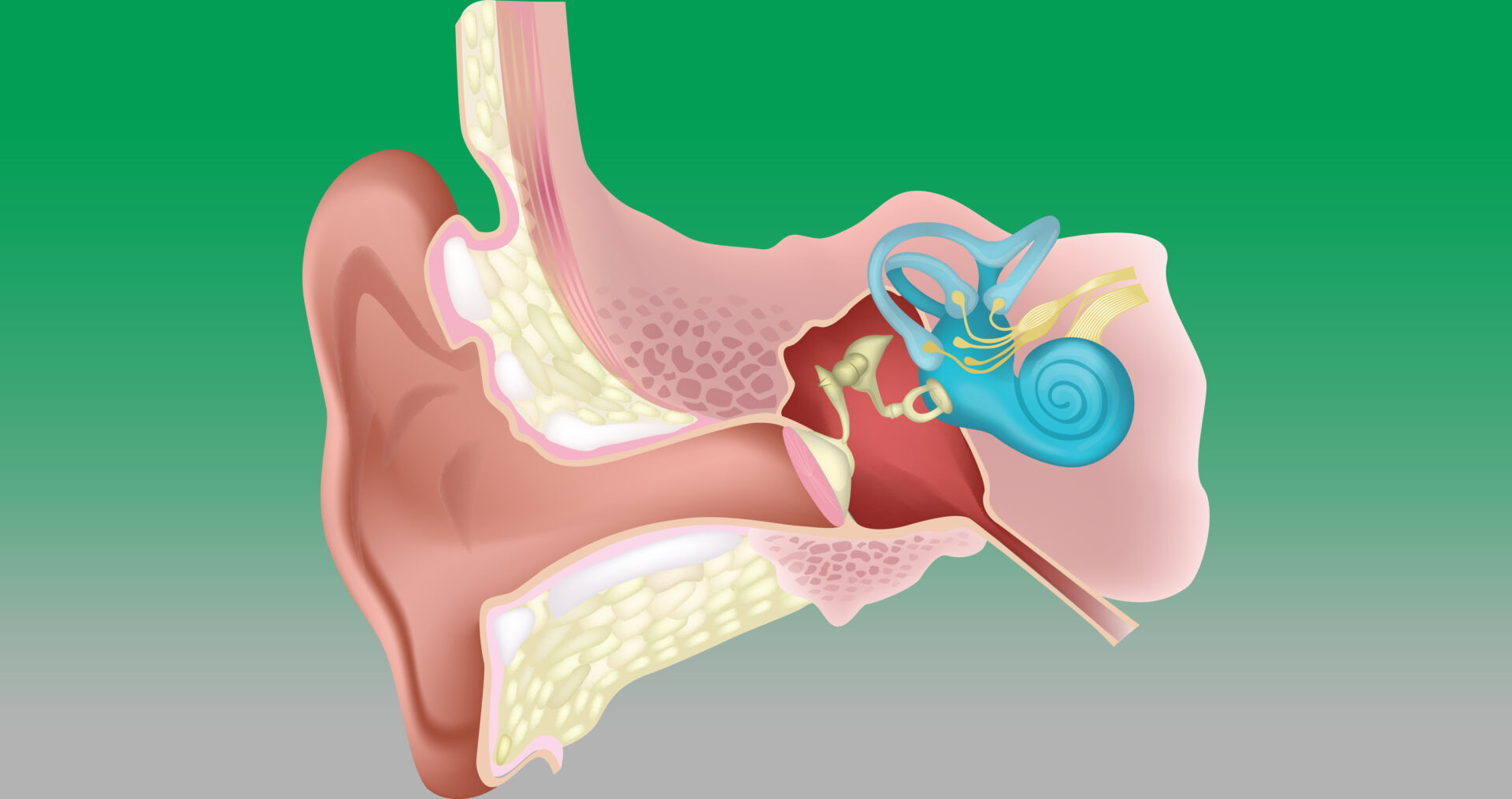Stress has become a common factor in our lives, worrying about work, family and relationships. In the UK, 74% of adults say they feel overwhelmed by stress, affecting both their physical and mental well-being. It’s now thought, however, that stress can cause issues with our hearing.
This blog will discuss the potential risk factors associated with stress and some methods for coping with the challenges of everyday life.

What is stress?
Firstly, what exactly is stress? Stress is our natural response to pressure, either from external factors such as life events or anxiety. We most commonly experience stress when we’re coping with a new situation or something unexpected with limited control over the situation.
When we experience stress, our bodies release hormones to help us cope, triggering either a ‘fight or flight’ response. This hormonal response helps us to quickly deal with the situation, returning to normal levels once the threat has been dealt with. However, experiencing too much stress too often can have more long-lasting effects on our mental and physical health.
How does hearing work?
To understand the effects of stress, we need to first understand the physiology, starting with our ears. Our ear is made up of 3 parts; the outer ear, middle ear and inner ear. The process of hearing begins in our outer ear. The noises we hear are made up of sound waves, or vibrations.
Once through our outer ear, the sound travels into our auditory canal before hitting our eardrum. Here, the eardrum vibrates, sending sound waves into our middle ear to 3 tiny bones called ossicles. This is where the sound becomes amplified. The sound travels to our inner ear, to the cochlea (a fluid-filled organ). The cochlea is lined with tiny hair cells (stereocilia) which convert the sound waves into electrical impulses, allowing our brain to register these impulses as sound.

How does a stress response work?
Now, how does a stress response work? When a stressful life event occurs, for example, a breakup or a work-related issue, the amygdala in our brain sends a distress signal to the hypothalamus.
The hypothalamus then signals for our sympathetic nervous system to trigger a ‘fight or flight’ response by releasing the hormone epinephrine (known as adrenaline) into the bloodstream via the adrenal glands. Epinephrine makes our heart beat faster, raising our pulse, blood pressure and breathing rate. Our body remains on high alert until the threat passes when our parasympathetic nervous system dampens the stress response.
How chronic stress can damage your hearing?
Combining the effects of stress with the mechanics of hearing, you can begin to see how chronic stress can cause hearing loss. One of the biggest effects of chronic stress is high blood pressure. One of the biggest consequences of high blood pressure is damaged blood vessels. This damage can occur all over the body, including in our ears.
An intricate network of vessels supplies blood to the structures in our ears, including the tiny hair cells inside the cochlea. Damage to the blood vessels due to high blood pressure leads to a lack of nutrients delivered to these hair cells, resulting in permanent damage.
The average human is born with 16,000 hair cells in their cochlea. Once 50% of these hair cells are damaged you may experience hearing loss. Unfortunately, this damage is permanent and irreversible.

Some symptoms you may experience from hearing loss due to stress include:
- Blocked feeling in your ears
- Painful ears
- Pressure build-up in your ears
- Muffled/muted sounds
- Loss of hearing in one or both ears
Can chronic stress lead to tinnitus?
Stress can not only affect our ability to hear but also our brain’s ability to correctly register sound. When those tiny hair cells in our cochlea are damaged or broken, they can sometimes send random electrical signals to our brains when they are not supposed to. The result is a constant or intermittent ringing, whistling, humming or hissing sound inside the head. This is called tinnitus.
In the UK, 1 in 10 adults have a form of tinnitus, often aggravated by stress. In fact, a study found that 53% of adults with tinnitus stated their symptoms started around a stressful period in their lives.
Ways to de-stress
The link between stress and hearing loss or tinnitus can be a frustrating realisation, especially with the constant pressure of life in today’s society. However, knowing some ways to reduce your stress and anxiety can greatly reduce the risk of impact on your hearing health.
Take a moment: The first step you should take to reduce your stress is to take a moment with yourself to recognise what the problem is and think about how you’re going to deal with it. Perhaps in your job, you have too much work with not enough time to complete it. Rather than stressing about your deadlines, figure out if you can hand something over to someone else, or prioritise the most important tasks first.
Exercise: Secondly, exercising is a proven stress reliever, where just 15-20 minutes a day can produce enough endorphins to boost your mood.
Communicate: Talking to friends and family can be a great way to receive help and advice with what you’re going through. This can relieve stress and even help build stronger relationships with those around you.

If you think you are experiencing hearing loss due to stress, speak with a professional audiologist who will be able to offer you help and advice.
Hearing Therapy offers the best treatment and advice for various conditions, including hearing loss and tinnitus, with the latest hearing aid technology.
Book an appointment with us today to combat stress and take back your hearing.
